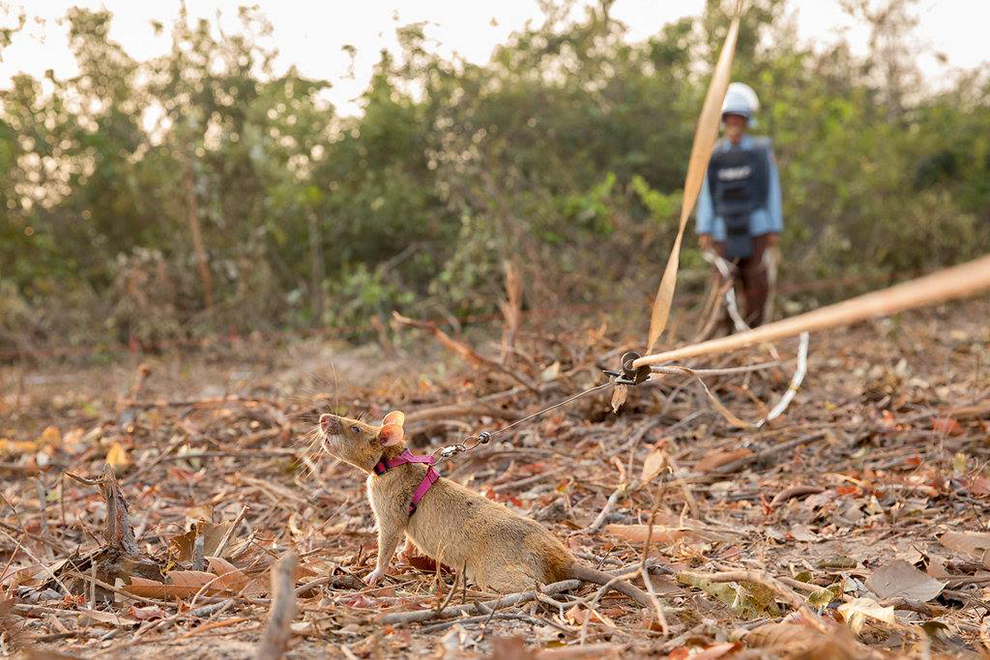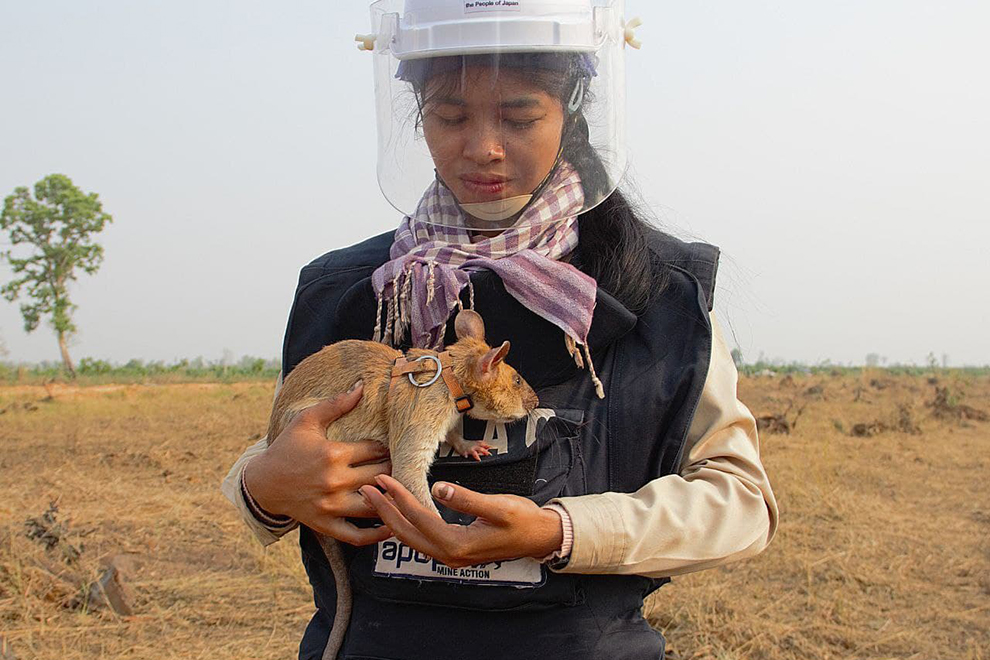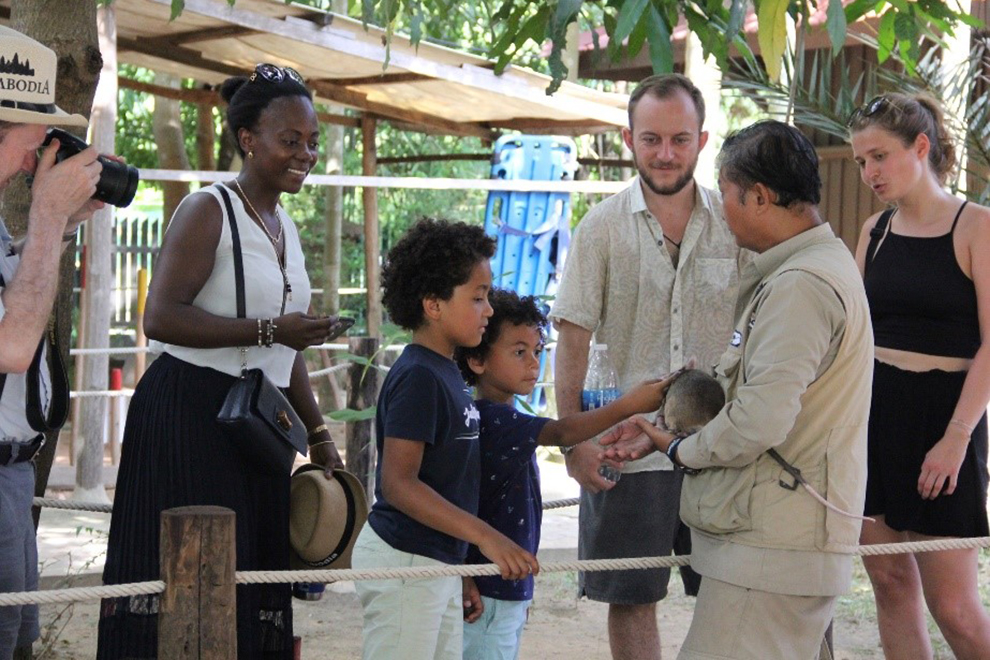PHNOM PENH (ANN/PHNOM PENH POST) – Early each morning, while most people are still asleep, a dedicated team of HeroRATs begins their vital work: making Cambodia safer from landmines.
Trained by the Belgian non-profit organisation APOPO, these extraordinary rats use their acute sense of smell to detect dangerous landmines, enabling the safe clearing of large areas for local communities. Rising at 4am, the HeroRATs start their work at 6am, covering 300-400 square meters of land each day.

Their remarkable olfactory abilities allow them to quickly locate landmines, which are then manually removed by human specialists. This innovative method significantly accelerates the demining process, with the rats surveying an area in just 30 minutes—much faster than human teams.
At the minefield, demining experts, equipped with protective gear, work alongside two handlers assigned to each rat. They cover designated 100-square-meter sections, with the rats identifying landmine locations before the ordnance is carefully excavated and destroyed.
“The rats are adept at locating buried landmines due to their sensitivity to heat and their nocturnal nature. After their work, they rest in the shade,” said Lily Shallom, APOPO’s communications officer. “Manual deminers then step in to safely remove and destroy the explosives.”
APOPO operates in Angola, Mozambique, Zimbabwe, Cambodia, and South Sudan, with previous work in Laos, Vietnam, and Thailand. According to the organisation, over 162,000 landmines and other explosives have been neutralised globally, freeing 107 million square meters of land and benefiting over 2.2 million people.
In Cambodia, APOPO has partnered with the Cambodian Mine Action Centre (CMAC) since 2015, achieving impressive results. The program now operates with over 60 animals across four provinces: Siem Reap, Preah Vihear, Battambang, and Ratanakkiri.
In 2023, efforts were intensified with the deployment of an additional Technical Survey Dog (TSD) team to accelerate clearance around the Koh Ker temple perimeter. This site, a UNESCO World Heritage Site recognised in September 2023, is culturally significant and requires protection from landmines.

APOPO’s Cambodian operations exceeded previous achievements, clearing over 18.5 million square meters of land and discovering and destroying 532 landmines, 60 cluster munitions, and 392 other explosive remnants of war (ERW). The Explosive Ordnance Risk Education (EORE) and Victim Assistance (VA) team reached over 26,000 people and provided treatment to 274 mine victims.
The organisation’s commitment to a mine-free Cambodia by 2025 remains steadfast, with plans to extend its work to other countries, particularly those with high tuberculosis (TB) burdens. APOPO-trained rats are also being used to detect TB, showcasing their versatility.
To raise awareness, APOPO established the APOPO Visitor Center in Siem Reap in 2017. This center offers tourists a unique chance to learn about Cambodia’s landmine history and see the HeroRATs in action. Visitors can watch as the rats detect TNT in a designated area and receive bananas as rewards for their successful detections.

Meas Sambath, the center’s manager, highlights the positive impact of these rodents and explains the mission to visitors. The center saw a significant increase in visitors in 2023, with over 33,000 guests compared to 8,600 in 2022.
“We provide an introduction to APOPO’s work, Cambodia’s landmine history, and the rats’ role in detecting explosives,” Sambath said. “A visit to the center is a top attraction in Siem Reap, complementing other famous sites like Angkor Wat.”



















































